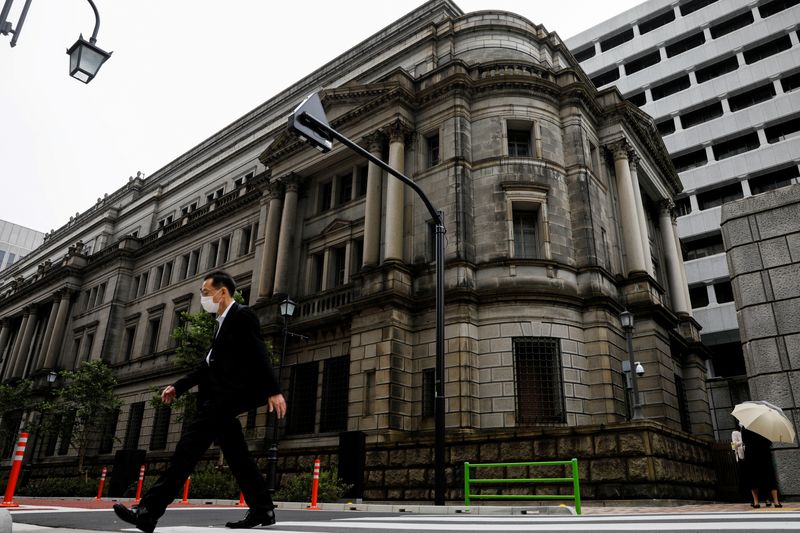By Leika Kihara
TOKYO (Reuters) - Bank of Japan policymakers saw the price outlook muddled by rising global commodity costs and soft consumption, minutes of their June meeting showed, underscoring the central bank's policy conundrum brought on by the COVID-19 pandemic.
Japan has not been immune to global commodity inflation with companies seeing input costs rising, though consumer prices have barely risen in contrast to those of other advanced nations that are reopening their economies.
"Many members said domestic wholesale inflation is rising reflecting global commodity price hikes, which could push up consumer prices down the road," the minutes of the BOJ's June rate review showed on Wednesday.
One member said Japan's consumer inflation could accelerate in the latter half of this year as demand recovers from the pandemic's initial hit, according to the minutes.
But others warned that slow wage growth and Japan's sticky deflationary mindset could moderate such inflationary pressures, the minutes showed.
"Once we begin to see pent-up demand emerge, services prices could overshoot. But there's also a risk prices could undershoot given high uncertainty over the wage outlook," one member was quoted as saying.
Some in the nine-member board also cautioned that rising prices of various goods, while driven largely by robust global demand, could push up costs for companies and drag on Japan's economy, the minutes showed.
"Prices for various goods are rising. If this persists and companies fail to pass on the higher costs, that could worsen Japan's terms of trade, and weigh on the economic and price outlook," a few members were quoted as saying.
At the June meeting, the BOJ kept monetary policy steady and unveiled a plan to create a new scheme to boost funding for activities aimed at combating climate change.
One member said the central bank must consider various ideas on how it could help Japan's economy make a smooth transition towards a post-pandemic world, the minutes showed.
Japan's wholesale prices rose 5.0% in June from a year earlier after surging 5.1% in May, their fastest pace since 2008, fuelled by rising commodity costs.

But core consumer prices, the BOJ's preferred measure of inflation, climbed just 0.2% last month as weak domestic demand kept firms from passing on the higher costs.
In new quarterly projections released in July, the BOJ raised its core consumer inflation forecast to 0.6% from 0.1% for the fiscal year to March 2022. But it projected inflation to stay below its 2% target in coming years.